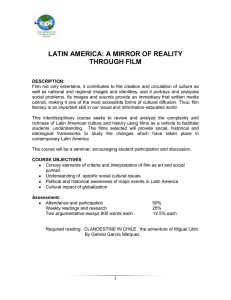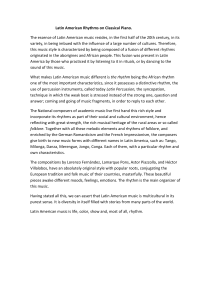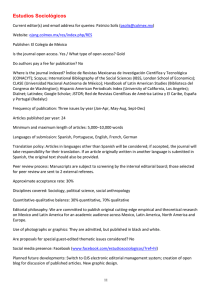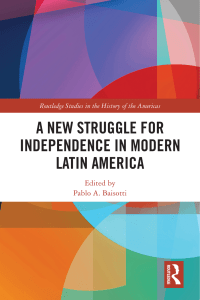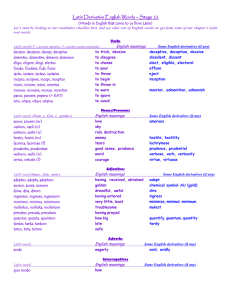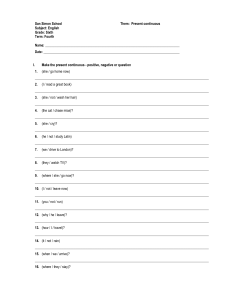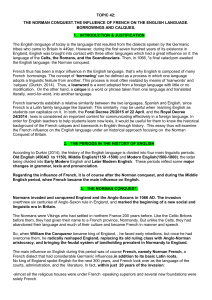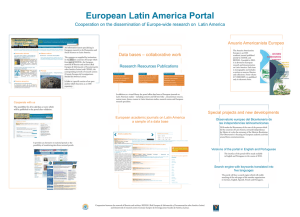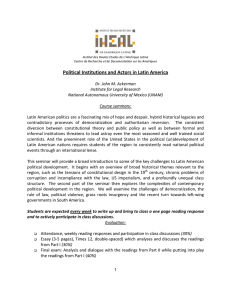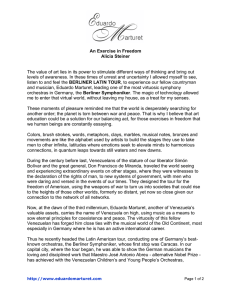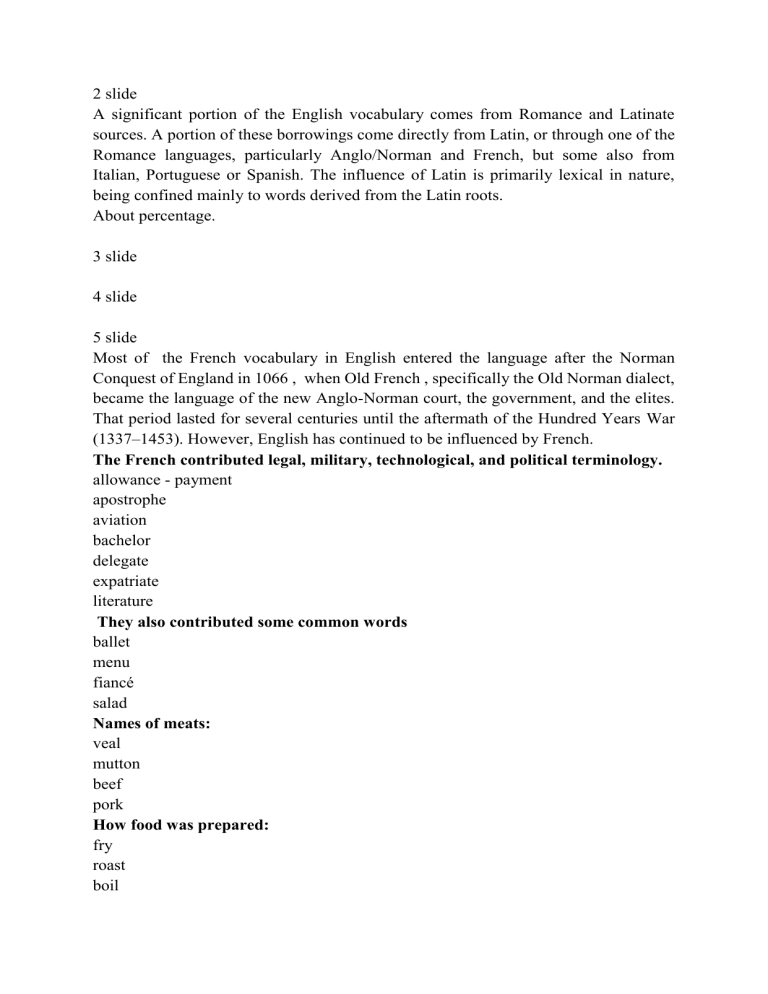
2 slide A significant portion of the English vocabulary comes from Romance and Latinate sources. A portion of these borrowings come directly from Latin, or through one of the Romance languages, particularly Anglo/Norman and French, but some also from Italian, Portuguese or Spanish. The influence of Latin is primarily lexical in nature, being confined mainly to words derived from the Latin roots. About percentage. 3 slide 4 slide 5 slide Most of the French vocabulary in English entered the language after the Norman Conquest of England in 1066 , when Old French , specifically the Old Norman dialect, became the language of the new Anglo-Norman court, the government, and the elites. That period lasted for several centuries until the aftermath of the Hundred Years War (1337–1453). However, English has continued to be influenced by French. The French contributed legal, military, technological, and political terminology. allowance - payment apostrophe aviation bachelor delegate expatriate literature They also contributed some common words ballet menu fiancé salad Names of meats: veal mutton beef pork How food was prepared: fry roast boil stew Words related to the nobility: prince duke baron viscount 6 slide 7 slide 8 slide Even though Latin is an extinct language, the fact of its influence on many languages, including English, keeps it alive. Latin contribution to English started long before the Anglo Saxons had come over to England. There are three stages of Latin influence: the Pre-Christian stage (contact with the Roman Empire), the Christianization Stage (the borrowing of new ideas and things which were brought with the Christianity) and the Renaissance Stage (the re-birth of classical scholarship when the Latin words embodied abstract and scientific terms and ideas). The latin words of our everyday life and some terminology alibi ego maximum and minimum veto vice versa video abdomen cardiology albinism There are words which we use in writing and we can meet them in essays, newspapers, bills and laws alter ego consensus de facto, de jure et cetera major verbatim The Latin abbreviations E.g. - for example (exempli gratia) P. S. - post scriptum Vs - versus, against N. B. - Nota Bene (note well) AD - the year of our Lord (н.э.) CE - Common Era (до н.э.) Slide 9 These languages contributed to English during 9-th and 10-th centuries but we are still adding Scandinavian words to our language today. owards the end of the eighth century the English (Anglo-Saxon) settlements of the East coast of Britain found themselves under attack from the Teutonic peoples of Scandinavia – the Northmen, Norsemen or Danes. Despite the resistance of the English, the Danes held sway in much of the East of England by the end of the ninth century and a Danish dynasty sat on a unified English throne from 1016 to 1042. Slide 10 The early contributions of Scandinavian to English are of two kinds – place-names and ordinary words. Slide 11 In the East of England there are more than 600 names of towns ending in -by: Whitby, Grimsby, Tenby. The settlement led to place names such as Anglesey, Bardsey, Swansea, Worm’s Head (worm was the Norse word for the dragon). Tusker Rock, an island in the Bristol Channel, took its name from Tuska, a Danish Viking who settled in the fertile Vale of Glamorgan. The island names of Skokholm (“wooded island”), Ramsey, Grassholm and Skomer also show Scandinavian origins. Beck – a stream Fell – a hill Firth or Fiord – an inlet of the sea Force – a waterfall Thorpe – a village The most useful and most often used word the Scandinavians gave us is “are”. The pure English (Anglo Saxon) word for this would have been beoth or sinden. The Scandinavians also gave us the habit of using the word “to” before an infinitive. Other old Norse words in English are: Bole (of a tree), bound (on a journey), cake, call, clumsy, curl, cut, dairy, dirt, fellow, ill, kid, odd, root, sky, weak and ugly… Some other Old Norse words missing from the list: husband, knife, knot, mistake, reindeer, saga, scare, scarf, scrape, skill, skin, take, troll, whisk, window (meaning wind-eye), work.
